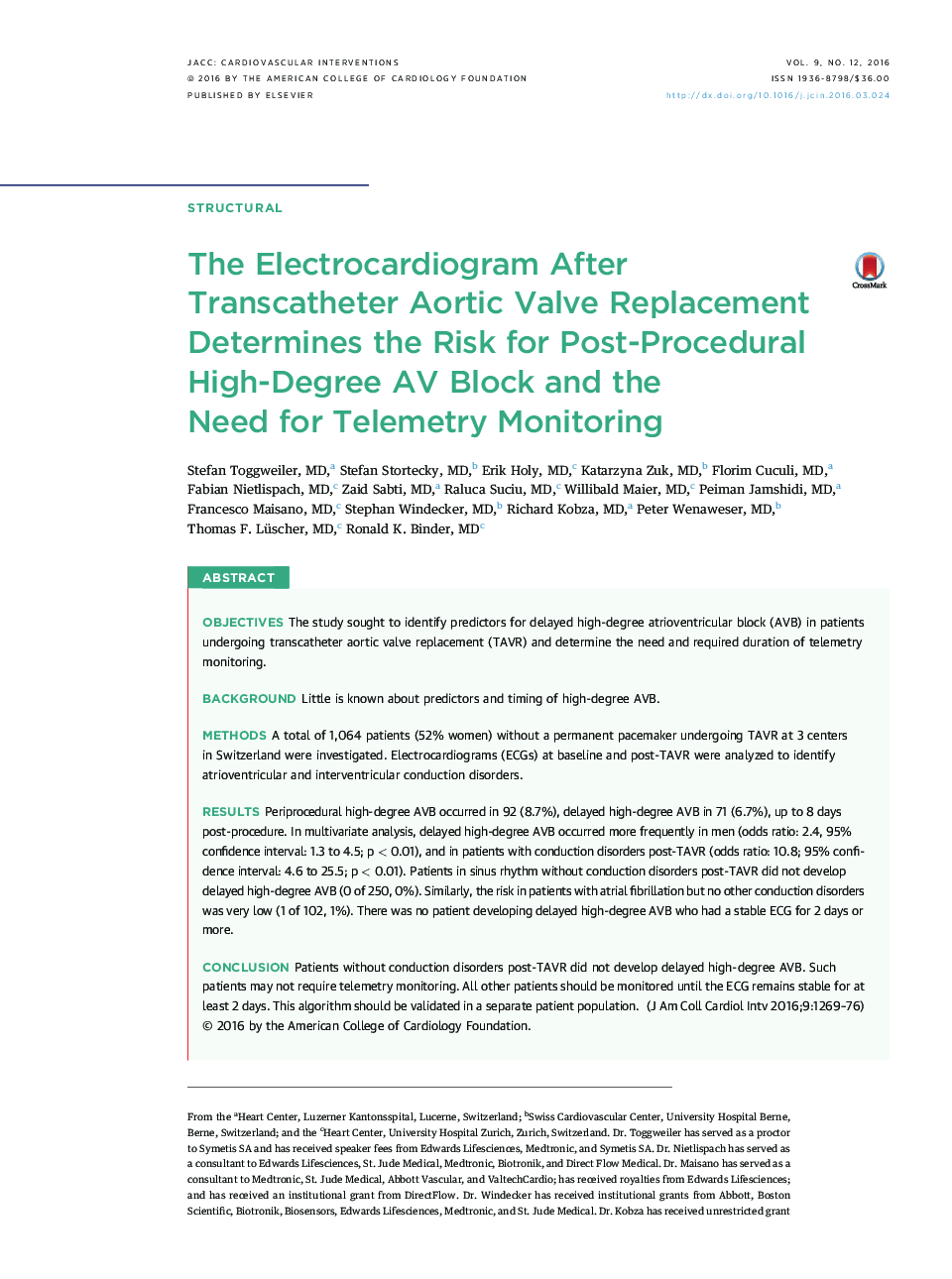| Article ID | Journal | Published Year | Pages | File Type |
|---|---|---|---|---|
| 2939633 | JACC: Cardiovascular Interventions | 2016 | 8 Pages |
ObjectivesThe study sought to identify predictors for delayed high-degree atrioventricular block (AVB) in patients undergoing transcatheter aortic valve replacement (TAVR) and determine the need and required duration of telemetry monitoring.BackgroundLittle is known about predictors and timing of high-degree AVB.MethodsA total of 1,064 patients (52% women) without a permanent pacemaker undergoing TAVR at 3 centers in Switzerland were investigated. Electrocardiograms (ECGs) at baseline and post-TAVR were analyzed to identify atrioventricular and interventricular conduction disorders.ResultsPeriprocedural high-degree AVB occurred in 92 (8.7%), delayed high-degree AVB in 71 (6.7%), up to 8 days post-procedure. In multivariate analysis, delayed high-degree AVB occurred more frequently in men (odds ratio: 2.4, 95% confidence interval: 1.3 to 4.5; p < 0.01), and in patients with conduction disorders post-TAVR (odds ratio: 10.8; 95% confidence interval: 4.6 to 25.5; p < 0.01). Patients in sinus rhythm without conduction disorders post-TAVR did not develop delayed high-degree AVB (0 of 250, 0%). Similarly, the risk in patients with atrial fibrillation but no other conduction disorders was very low (1 of 102, 1%). There was no patient developing delayed high-degree AVB who had a stable ECG for 2 days or more.ConclusionPatients without conduction disorders post-TAVR did not develop delayed high-degree AVB. Such patients may not require telemetry monitoring. All other patients should be monitored until the ECG remains stable for at least 2 days. This algorithm should be validated in a separate patient population.
